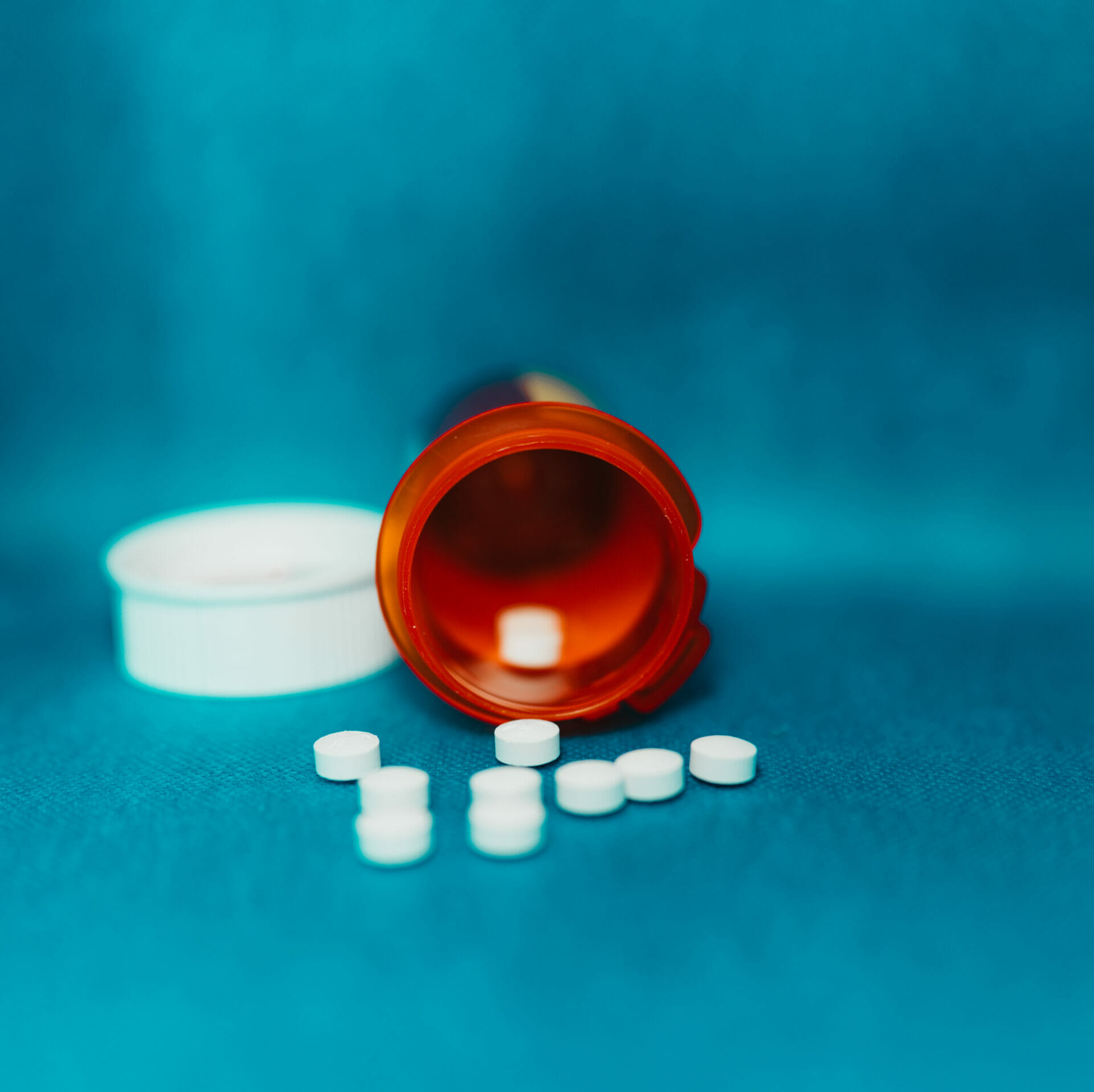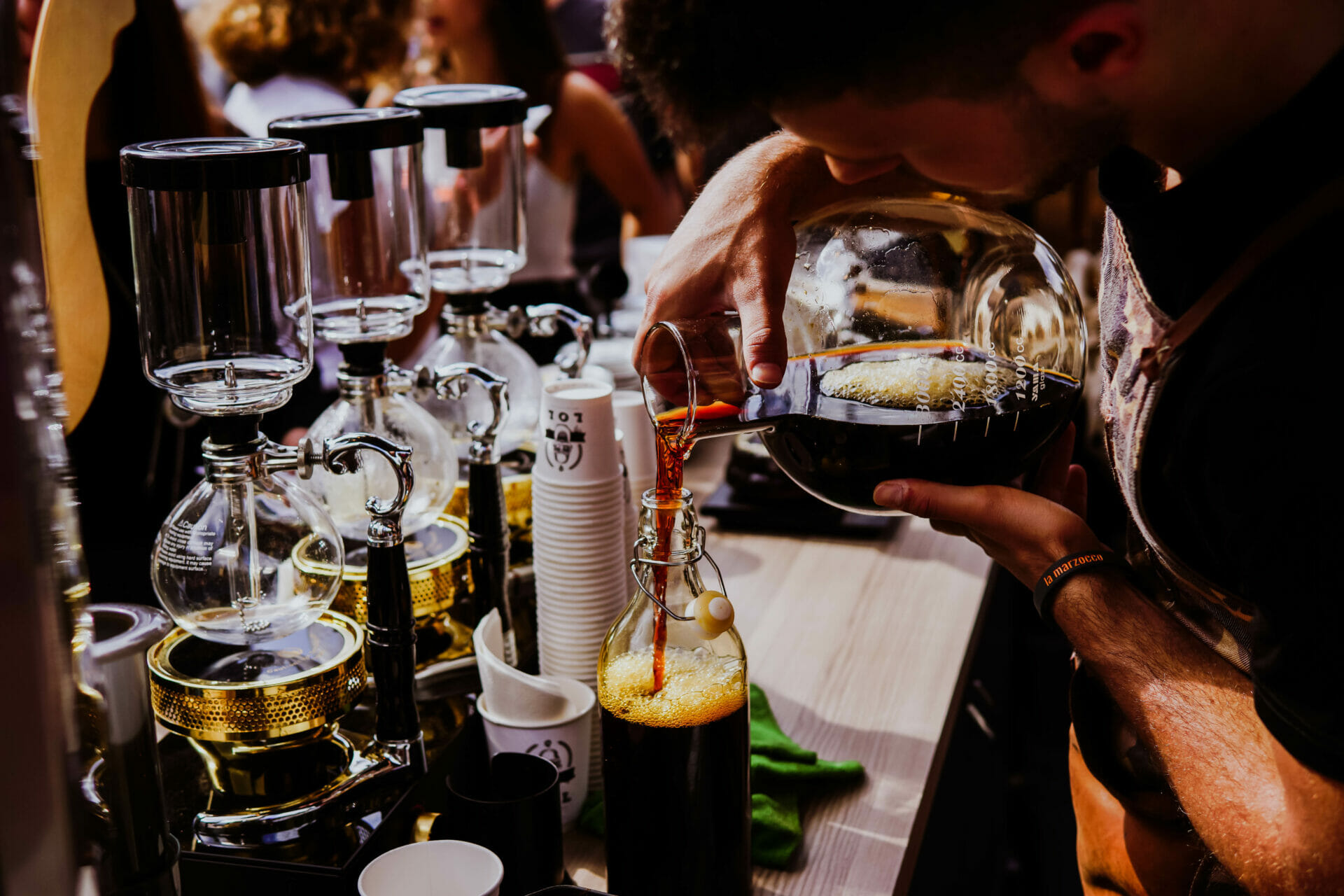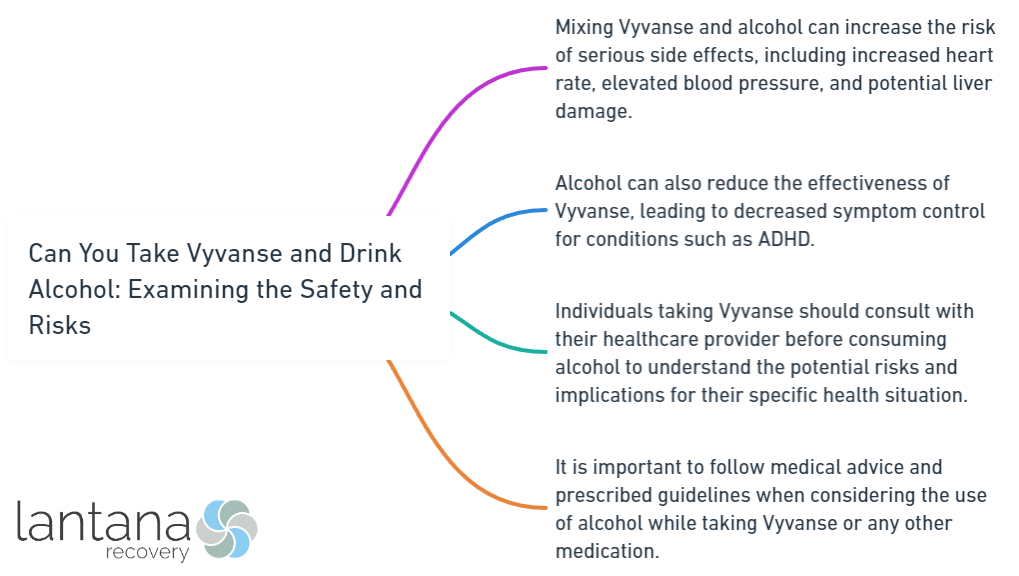Vyvanse and alcohol are two substances that are commonly used by individuals for different purposes. Vyvanse is a medication prescribed for attention-deficit/hyperactivity disorder (ADHD) and binge-eating disorder, while alcohol is a widely consumed beverage known for its intoxicating effects. It is crucial to understand the potential risks and safety considerations when combining these two substances.
Vyvanse, also known as lisdexamfetamine, is a central nervous system stimulant that affects the chemicals in the brain and nerves contributing to hyperactivity and impulse control. On the other hand, alcohol is a depressant that slows down brain activity and affects motor skills and cognitive functions.
Combining Vyvanse and alcohol can have significant interactions and pose various risks. In this article, we will examine the safety considerations, potential interactions, and the risks associated with combining Vyvanse and alcohol. Specifically, we will discuss the following:
1. Interactions between Vyvanse and Alcohol: Exploring how these substances interact and affect each other when consumed together.
2. Safety Precautions: Highlighting the precautions that individuals should take to minimize the potential risks of combining Vyvanse and alcohol.
3. Risks and Dangers: Investigating the potential dangers and adverse effects that can occur when Vyvanse and alcohol are used concurrently.
we will discuss the effects that can arise from combining Vyvanse and alcohol, such as increased alcohol sensitivity, impaired judgment and coordination, an increased risk of heart problems, and the potential worsening of anxiety and depression symptoms.
While combining Vyvanse and alcohol is generally discouraged due to potential risks, there may be certain situations where it can be safe under medical supervision or after carefully considering individual factors.
This article aims to provide a comprehensive examination of the safety considerations, risks, and effects of combining Vyvanse and alcohol to help individuals make informed decisions about their health and well-being. It is essential to understand the potential consequences before consuming these substances together.
What is Vyvanse?
Vyvanse is a prescription medication used to treat ADHD in both children and adults. It is a central nervous system stimulant that contains lisdexamfetamine, which is converted into dextroamphetamine in the body. “ADHD is a neuropsychiatric condition that affects both children and adults, with a prevalence of approximately 9% in the U.S. and varying rates in other countries” (Lisdexamfetamine Dimesylate (Vyvanse), A Prodrug Stimulant for Attention-Deficit/Hyperactivity Disorder, Goodman, 2010.)
Dextroamphetamine affects chemicals in the brain that contribute to hyperactivity and impulse control. Unlike other ADHD medications, Vyvanse is inactive until it is metabolized in the body. This formulation provides a smooth and long-lasting effect throughout the day. Vyvanse comes in strengths ranging from 10mg to 70mg and is taken once daily in the morning. It is important to use Vyvanse under the guidance of a healthcare professional. Like any medication, it can have side effects such as loss of appetite, insomnia, upset stomach, and increased heart rate. It may also interact with certain medical conditions and other medications.
One person I know, let’s call him John, was prescribed Vyvanse for his ADHD. It significantly improved his ability to focus and manage impulsivity. However, John also experienced side effects like decreased appetite and trouble sleeping. With his doctor’s guidance, he adjusted the dosage and found a balance that worked for him. Remember that everyone’s experience with medication can vary, so consult with a healthcare professional to determine if Vyvanse is right for you.
What is Alcohol?
Alcohol, also known as ethanol or ethyl alcohol, is a substance found in beverages that is consumed for its psychoactive effects. It is produced through yeast fermentation of sugars. When alcohol is consumed, it slows down the central nervous system, leading to changes in mood, cognition, and behavior.
Alcoholic beverages contain varying amounts of alcohol. For example, beer usually has an alcohol by volume (ABV) of 4-6%, while wine ranges from 12-16% ABV. Distilled spirits like vodka, whiskey, and rum typically have around 40% ABV.
Once alcohol is consumed, it is rapidly absorbed into the bloodstream through the stomach and small intestine. It is then metabolized in the liver, which can process approximately one standard drink per hour. Excessive alcohol consumption can result in intoxication, impaired judgment, and negative health effects.
Long-term excessive alcohol consumption can severely damage organs such as the liver, brain, heart, and pancreas. It significantly increases the risk of developing chronic diseases like liver cirrhosis, alcoholic hepatitis, cardiovascular diseases, and certain types of cancer.
It is important to note that alcohol affects individuals differently, depending on factors such as body weight, metabolism, and tolerance. Moderate drinking, defined as up to one drink per day for women and up to two drinks per day for men, may have some health benefits. However, excessive alcohol consumption poses significant risks to both physical and mental well-being.

Can You Take Vyvanse and Drink Alcohol?
Though about alcohol and Phentermine and want to know about Vyvanse and alcohol? Discover the truth behind combining these substances, including their interactions, safety precautions, and potential risks. Find out what you need to know before making any decisions. Don’t take any chances with your health – let’s dive into the facts and make informed choices together. Buckle up, as we explore the complex relationship between Vyvanse and alcohol.
Interactions between Vyvanse and Alcohol
Using Vyvanse and drinking alcohol can have significant interactions and potential risks. Interactions between Vyvanse and alcohol can enhance the effects of both substances, leading to increased stimulation, intoxication, and impairment. This can result in impaired judgment, coordination, and an increased risk of accidents or injuries. Additionally, both Vyvanse and alcohol can impact heart function, potentially worsening heart problems.
Furthermore, combining Vyvanse and alcohol can worsen anxiety and depression symptoms. Given these interactions, it is generally not recommended to drink alcohol while taking Vyvanse. However, there may be situations where it is deemed safe under medical supervision or based on individual factors. It is crucial to consult with your healthcare provider for personalized advice in such circumstances. To prioritize your safety and well-being, refrain from drinking alcohol while taking Vyvanse and follow any guidance provided by your healthcare professional.
Safety Precautions
When combining Vyvanse and alcohol, take safety precautions to minimize risks and ensure well-being. Consider the following safety precautions:
1. Avoid alcohol: To eliminate interactions or dangers, abstain from alcohol while taking Vyvanse.
2. Follow medical advice: If your healthcare provider allows alcohol consumption with Vyvanse, follow their instructions.
3. Understand alcohol tolerance: Vyvanse can increase sensitivity to alcohol, so be aware of and manage your tolerance accordingly.
4. Stick to moderate consumption: If drinking alcohol while on Vyvanse under medical supervision, limit intake to moderate levels. This generally means no more than one drink per day for women and two drinks per day for men.
5. Monitor body’s response: Pay attention to any negative side effects or adverse reactions, such as increased heart rate or worsened mood. If experienced, stop drinking immediately and seek medical advice.
Remember, the safest course of action is to avoid alcohol while taking Vyvanse. Always consult with your healthcare provider to determine what is best for your situation.
Pro-tip: Prioritize health and well-being by making informed decisions about alcohol consumption while taking Vyvanse. Safety should always be the top priority.
Risks and Dangers
The combination of Vyvanse and alcohol can significantly increase the risks and dangers associated with their use. Garcia et al., writes in Prescription Stimulant Misuse and Diversion Events Among College Students that prescription stimulant misuse and diversion are interconnected actions, with diversion leading to increased availability of stimulants for misuse.When taken together, alcohol can have a much stronger effect, causing individuals to become intoxicated more rapidly. This heightened state of intoxication can lead to impairments in judgment and coordination, ultimately increasing the risk of accidents.
It is important to note that both Vyvanse and alcohol can independently affect the cardiovascular system, and combining them can place extra strain on the heart, thereby magnifying the risk of heart problems.
Vyvanse is primarily prescribed to address ADHD and binge eating disorder, while alcohol consumption can exacerbate symptoms of anxiety and depression that are commonly associated with these conditions. Given these factors, it is critically important to take into consideration individual dosage and the amount of alcohol consumed. Furthermore, it is crucial to consult with a healthcare professional before deciding to combine Vyvanse and alcohol, as doing so will help ensure one’s overall safety.

Effects of Combining Vyvanse and Alcohol
When it comes to the effects of combining Vyvanse and alcohol, it’s crucial to understand the potential risks involved. In this section, we’ll take a closer look at the impact this combination can have on various aspects of your well-being. From increased alcohol sensitivity to impaired judgment and coordination, and even heightened risks of heart problems, we’ll uncover the potential consequences. Additionally, we’ll examine how this combination may worsen anxiety and depression symptoms, shedding light on the importance of making informed choices when it comes to your health.
Increased Alcohol Sensitivity
Increased alcohol sensitivity is a significant side effect that occurs when combining Vyvanse and alcohol. When Vyvanse is taken, it alters the body’s ability to metabolize alcohol, resulting in a heightened response to alcohol. This increased sensitivity can cause faster and stronger intoxication, even when consuming smaller amounts of alcohol.
In addition, combining Vyvanse and alcohol can intensify other side effects such as dizziness, drowsiness, and blurred vision. These side effects can impair judgment and coordination, making it unsafe to engage in activities that require focus and alertness, such as driving or operating machinery.
It is important to note that individual responses may differ based on factors like body weight, metabolism, and tolerance. Some individuals may experience an even greater alcohol sensitivity while taking Vyvanse.
Considering the amplified alcohol sensitivity, it is generally advised to refrain from consuming alcohol while taking Vyvanse. The combination of Vyvanse and alcohol can pose risks to both physical and mental health, including an increased chance of heart problems and exacerbated symptoms of anxiety and depression.
Impaired Judgment and Coordination
Combining Vyvanse and alcohol can lead to impaired judgment and coordination. Vyvanse, as a CNS stimulant, enhances focus and alertness, while alcohol, being a depressant, hampers cognitive function and decision-making. Together, Vyvanse can disguise the effects of alcohol, which escalates the likelihood of poor choices and risky behavior.
Notably, Vyvanse heightens alertness and energy, whereas alcohol induces drowsiness and diminishes motor skills. When these two substances are combined, coordination can be impaired, making it perilous to operate machinery, drive, or partake in activities that necessitate precise movements.
Illustrating the peril of impaired judgment and coordination arising from the combination of Vyvanse and alcohol is Sarah’s real-life example. Sarah, a college student, made use of Vyvanse to concentrate on her studies. However, during a weekend party, she consumed alcohol while still on Vyvanse. Despite feeling more alert and confident, Sarah’s impaired judgment led her to make risky decisions. She drove home under the influence and caused an accident resulting in injuries.
This anecdote serves as a reminder of the potential dangers associated with combining Vyvanse and alcohol. It is crucial to comprehend the risks involved and prioritize personal safety by refraining from alcohol while taking Vyvanse. If circumstances demand the combination, seeking medical advice is imperative.
Increased Risk of Heart Problems
Combining Vyvanse and alcohol significantly increases the risk of heart problems. Both Vyvanse, a medication for ADHD, and alcohol can independently increase heart rate, elevate blood pressure, and disrupt normal heart rhythms. This combination can strain the heart and lead to serious cardiovascular events, especially in individuals with existing heart conditions.
The combination of Vyvanse and alcohol can constrict blood vessels, decrease oxygen supply to the heart, and increase the risk of heart attack. It is important to note that these risks apply not only to heavy alcohol consumption but also to moderate intake.
To ensure your safety, it is advisable to avoid alcohol completely while taking Vyvanse. If you have concerns or questions, consult a healthcare professional for personalized advice. They can provide accurate information and help you make an informed decision about alcohol use with Vyvanse.
Worsened Anxiety and Depression Symptoms
Combining Vyvanse and alcohol can exacerbate symptoms of anxiety and depression. This is particularly significant for individuals who already struggle with anxiety or depression.
1. Increased Anxiety: Vyvanse, as a stimulant medication, can raise heart rate and blood pressure. When combined with alcohol, it can heighten symptoms of anxiety.
2. Amplified Depressive Symptoms: Alcohol, being a depressant, can impact mood and amplify feelings of sadness or hopelessness. Taking Vyvanse alongside alcohol can intensify these symptoms of depression.
3. Mental Health Vulnerability: Individuals with pre-existing anxiety or depression may be more susceptible to experiencing worsened symptoms when consuming alcohol while taking Vyvanse. It is crucial for these individuals to discuss their concerns with their healthcare provider.
4. Individual Variation: The impact of combining Vyvanse and alcohol on symptoms of anxiety and depression can vary from person to person. Paying attention to how these substances affect your mental well-being and adapting accordingly is crucial.
5. Risk of Harm: Worsened symptoms of anxiety and depression can increase the risk of self-harm and worsen existing mental health conditions. If you notice significant changes in your mood or mental well-being, seek professional help.
Prioritizing your mental health is essential when deciding whether to consume alcohol while taking Vyvanse. Consult with your healthcare provider or experts that provide outpatient addiction services near you for personalized advice and guidance if you have concerns or questions.

Is it Ever Safe to Drink Alcohol while Taking Vyvanse?
Is it really safe to mix Vyvanse and alcohol? Let’s dig into the complexities of this topic to better understand the potential risks involved. We’ll explore whether there are any scenarios where alcohol consumption can be deemed safe while taking Vyvanse. Delving into the realm of individual factors and the importance of medical supervision, we’ll navigate through the intricacies of balancing these two substances. Stay tuned to uncover the truth behind this intriguing subject.
Under Medical Supervision
When taking Vyvanse, it is important to follow the guidance of a medical professional who is under medical supervision. Medical supervision can help monitor potential interactions and risks involved with the combination of Vyvanse and alcohol.
Healthcare providers can evaluate an individual’s medical history, medications, and circumstances to determine if it is safe to drink alcohol while taking Vyvanse under medical supervision. This assessment considers the interactions and risks involved, ensuring the individual’s safety.
Caution should always be exercised when combining Vyvanse and alcohol, even under medical supervision. Moderate alcohol consumption may be tolerated by some individuals under medical supervision, but it is not guaranteed to be safe for everyone.
Before drinking alcohol while taking Vyvanse, individuals under medical supervision should consider their specific circumstances and factors such as dosage, overall health condition, and past experiences. Under medical supervision, they can make an informed decision regarding the combination of Vyvanse and alcohol.
Individual Factors to Consider
When making the decision about whether to take Vyvanse and consume alcohol, it is important to take individual factors into consideration. These factors can vary from person to person and can impact the safety and risks associated with combining Vyvanse and alcohol.
One important factor to consider is tolerance. The level of tolerance to both Vyvanse and alcohol can affect how the combination of the two substances affects an individual. Those with higher tolerance to either substance may experience different effects compared to those with lower tolerance.
Sensitivity is another factor that plays a role. Some individuals may be more sensitive to the effects of Vyvanse and alcohol, leading to heightened responses when the two are combined.
Medical history is also a crucial factor to consider. Existing medical conditions and medications can impact the safety of combining Vyvanse and alcohol. Certain conditions or medications like Imodium may increase the risks and potential interactions.
The dosage of Vyvanse and the amount of alcohol consumed can also have an impact. Higher doses of Vyvanse or larger amounts of alcohol may result in more pronounced effects and potential risks.
Personal goals and reasons for taking Vyvanse should also be taken into account. It is important to consider whether the potential risks outweigh the benefits and if there are alternative strategies to achieve the desired outcome.
Considering these individual factors can help inform the decision-making process when it comes to combining Vyvanse and alcohol. However, it is crucial to consult with a healthcare professional for personalized advice and guidance based on individual circumstances and needs.
Remember, this information is not a substitute for professional medical advice. Always consult with a healthcare professional before making decisions regarding the combination of Vyvanse and alcohol.
Frequently Asked Questions
Can You Take Vyvanse and Drink Alcohol: Examining the Safety and Risks
1. Can I consume alcohol while taking Vyvanse?
Although the manufacturer and medical literature do not explicitly warn against drinking alcohol while taking Vyvanse, it is important to exercise caution. Drinking alcohol while on Vyvanse, a controlled substance used to treat ADHD and binge eating disorder, can hide the effects of alcohol and lead to increased alcohol consumption. This can result in a higher risk of alcohol poisoning and injuries.
2. What are the potential risks of mixing Vyvanse and alcohol?
Mixing Vyvanse and alcohol can have adverse effects. Vyvanse is in the same class of drugs as amphetamines, which pose heart risks. Combining Vyvanse with alcohol can increase the risk of heart problems, such as heart attack, stroke, and high blood pressure. It can also prolong the onset of alcohol effects and lead to heavier drinking, increasing the risk of alcohol poisoning. Moreover, mixing these substances can result in overdose as the depressant effects of alcohol counteract the stimulant effects of Vyvanse.
3. Can alcohol reduce the effectiveness of Vyvanse?
Yes, consuming alcohol while taking Vyvanse can reduce its effectiveness. The combination of alcohol and Vyvanse can interfere with the drug’s efficacy and worsen the symptoms of conditions like ADHD, narcolepsy, or binge eating disorder. It is important to closely monitor the effects of both substances and consult with a healthcare professional.
4. Are there any potential interactions between Vyvanse and other medications?
Yes, Vyvanse may interact with certain medications. These include selective serotonin reuptake inhibitors (SSRIs), serotonin-norepinephrine reuptake inhibitors (SNRIs), tricyclic antidepressants (TCAs), triptans, fentanyl, lithium, tramadol, buspirone, and acetazolamide. These interactions can increase the risk of side effects from Vyvanse and the other drugs. It is important to discuss all medications and supplements you are taking with your doctor before starting Vyvanse.
5. What are the risks of mixing Vyvanse and alcohol in the long term?
Mixing Vyvanse and alcohol in the long term can lead to various risks. These include heart problems, increase in risk-taking behaviors, liver damage, depression and anxiety, increased risk of psychosis, overdose, potential for developing addiction, and poor concentration. It is crucial to avoid mixing Vyvanse and alcohol to mitigate these risks and ensure your overall well-being.
6. What should I do if I suspect addiction to Vyvanse or alcohol?
If you suspect addiction to Vyvanse or alcohol, it is important to seek professional help. Addiction to these substances requires specialized treatment, and professional addiction treatment centers can provide the necessary support. Programs such as medical detox, inpatient treatment, outpatient treatment, and therapy options like cognitive-behavioral therapy can help address addiction and create an effective treatment plan tailored to your needs.










